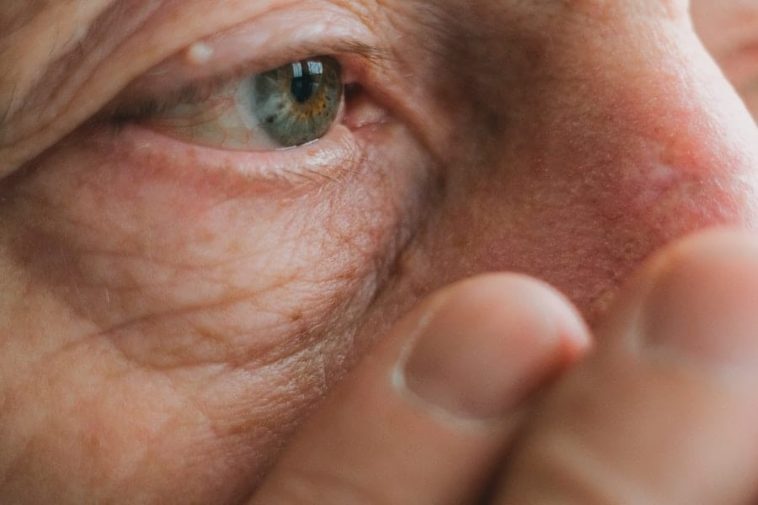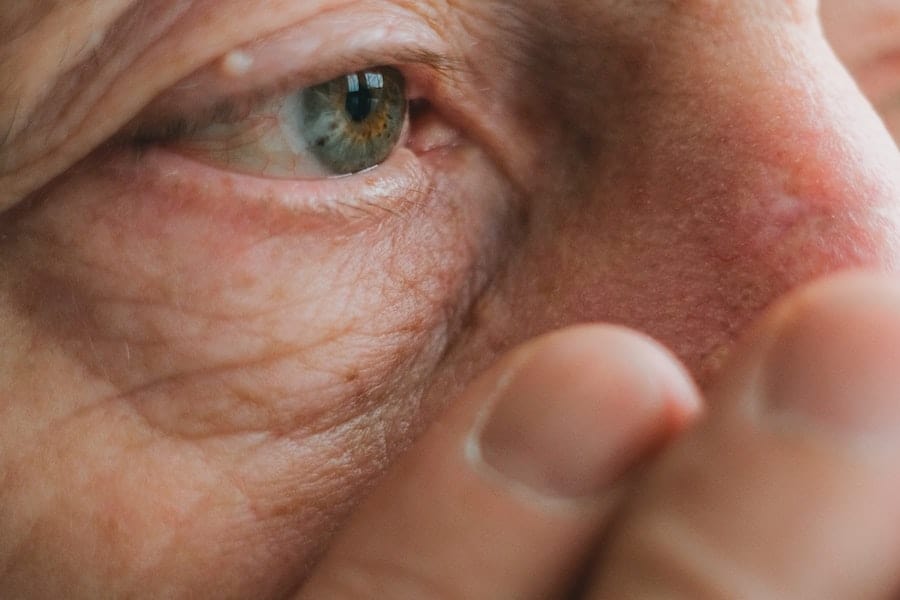When used correctly, glycolic acid can be a powerful tool in your skincare routine. It’s especially useful for those with sensitive skin that doesn’t respond well to other exfoliators. However, it’s important to find the right concentration and avoid over-exfoliating your skin if you want to avoid damaging it in the long term. If you have sensitive skin that is prone to redness or broken capillaries, you need to be even more careful when using a chemical exfoliator like glycolic acid. Even if its properties are beneficial for your skin, using it too often or in high concentrations could have negative consequences on the long term. In this blog post you will learn about some effective ways to repair damaged skin at home by using simple ingredients from your kitchen and trusted skincare products. Let’s read on and discover how you can use these tips and tricks to keep your skin happy and healthy!
How To Repair Damaged Skin
Change Your Cleansing Strategy
One of the first things you need to do if you have damaged skin is change your skincare routine. Drastically reducing the amount of products you use and changing your cleansing strategy can make a huge impact on how your skin looks and feels. First, you need to find a cleanser that is gentle enough to avoid damaging your skin. People with sensitive skin should use a foaming cleanser with a low pH like Cetaphil’s Gentle Skin Cleanser. This cleanser has a pH level of 5.5, which is slightly acidic and won’t strip your skin or leave it feeling dry and tight. When you’re cleaning your face, remember to avoid scrubbing or rubbing your skin too hard. Gentle circular motions will get the job done without stripping your skin’s natural oils or leaving you with an irritated, red complexion.
Add a Toning Step to Your Routine
Many people already use toners in their skincare regimens, but many others don’t. If you’re one of the many who could benefit from this habit, now is the time to start. Toners are great for cleaning your skin before you apply your serums and moisturizer. This prevents dirt and bacteria from clinging to your face and creating more issues like blackheads, breakouts, and redness. Tones can also be extremely helpful for treating and preventing damaged skin. Most toners are rich in antioxidants, which help neutralize free radicals and improve your skin’s elasticity. If you have sensitive skin, look for toners that are rich in soothing ingredients like aloe vera and chamomile. You can also opt for a toner that includes glycolic acid. Toning your face with an AHA toner is a great way to gently exfoliate your skin without causing irritation or over-drying.

Use an Over-the-Counter BHA Product
If you’re already using a glycolic acid-based toner, you’re well on your way towards repairing your skin. However, you can maximize the benefits of your skincare routine by adding an over-the-counter beta hydroxy acid (BHA) product to your daily regimen. BHAs are chemical exfoliants that are very similar to AHAs. They have smaller molecules that allow them to penetrate deeper into your pores and break down dead skin cells more efficiently. BHAs are also great for treating acne. They can reduce inflammation, unclog pores, and help your acne scars fade over time. BHAs are often gentler and less irritating than chemical exfoliants like salicylic acid and glycolic acid, so they are a great choice for sensitive skin. If you have sensitive skin, look for an over-the-counter BHA product that has a low percentage of 2% salicylic acid or less. BHAs are capable of causing irritation, but most people find them to be less irritating than chemical exfoliants.
Incorporate Gentle Exfoliation Into Your Routine
If you want to take your skin care routine to the next level, you can add gentle exfoliation to your skincare regimen. Exfoliating your skin once or twice a week can improve the texture and appearance of your skin by removing dead cells, dirt, and excess oil. You can use physical exfoliators like exfoliating cleansing brushes or your favorite face scrub. You can also use chemical exfoliators like vitamin C serums, alpha hydroxy acids, or enzymatic exfoliators. To make sure your skin doesn’t become irritated, exfoliate with a gentle touch. Be careful not to scrub too hard or you may cause irritation and break capillaries. You’ll know that you’re doing it right when your skin is smooth without any redness.
Try Out MSM and Egg Whites
As you learn how to repair damaged skin, you’ll want to incorporate ingredients into your skincare routine that fight inflammation, reduce redness, and speed up the healing process. Methyl sulfonyl methane (MSM) is an anti-inflammatory that you can add to your skincare routine. It’s often used as an anti-aging supplement, but it’s great for your skin, too. MSM can be applied topically or taken orally. If you want to reap the benefits of this skincare ingredient, you need to take it daily. Egg whites are another great skincare ingredient that you can use to heal your skin. They contain amino acids and proteins that help fight acne and reduce redness. If you want to try these skincare ingredients, you can apply them directly to your face or use them as a facial mask. You can also add them to your skincare products or make them into a DIY face mask.
Repair the Damage With Collagen Protein
If you have very damaged skin, collagen protein might be the best way to repair it. Collagen is the most abundant protein in our skin and responsible for keeping it bouncy, elastic, and youthful looking. As we age, our bodies produce less collagen, which leads to sagging and wrinkling. To help prevent these signs of aging, you can add collagen to your skincare routine. You can ingest collagen by taking a daily supplement or applying a collagen skincare product to your face. Many skincare products have collagen in them, but you can also find pure collagen protein powder at the drugstore. If you want to use it in your skincare routine, you can add it to a DIY face mask or add it to your favourite skincare product.
Repair your skin with a hydrating face mask
Sometimes your skin just needs a rest from all the skincare products. If you’re experiencing a lot of redness or sensitivity, it could be a good idea to give your skin a break from all the products by trying a hydrating face mask. H hydrating face masks are raved about for a reason. They soak up excess oil, hydrate your skin, and are great for sensitive skin. You can make a hydrating face mask with ingredients that you already have in your kitchen. Many of these masks are made with ingredients like oatmeal, yogurt, and honey. You can also find premade hydrating face masks in your local drugstore. These products contain ingredients like aloe vera, peptides, and hyaluronic acid.
Repair damaged skin with a collagen mask
If your skin is still experiencing issues even after trying a hydrating face mask, you can try mixing a collagen mask into your skincare routine. You can buy premade collagen masks or make your own. You can mix collagen powder with a few other ingredients to form a mask. Collagen creams, gels, and serums also work well as masks. Whichever route you choose, make sure to leave the mask on your face for between 15 and 20 minutes. If your skin is still red and irritated after trying these tips, you should visit a dermatologist to get a professional opinion.
Apply a hyaluronic acid serum
Hyaluronic acid is a naturally occurring substance that’s found in your skin. It’s capable of locking in moisture, so it’s a great ingredient for skin that’s dry and sensitive. You can use hyaluronic acid in your skincare routine by applying it to your face. Many products already have hyaluronic acid in them, but you can also buy a hyaluronic acid serum at the drugstore. Apply this product directly to your face and leave it on for 15 to 20 minutes.
Final Word
Conclusion paragraph: Damage control is important for keeping your skin looking healthy and radiant. With the right knowledge, you can start to treat some of the most common skin concerns. Remember to always consult a dermatologist before using any of these tips or anything else for that matter. If you have any questions about your skin, make sure you get in contact with a professional. And be sure to check out our skincare section for more helpful tips on how to repair damaged skin.





